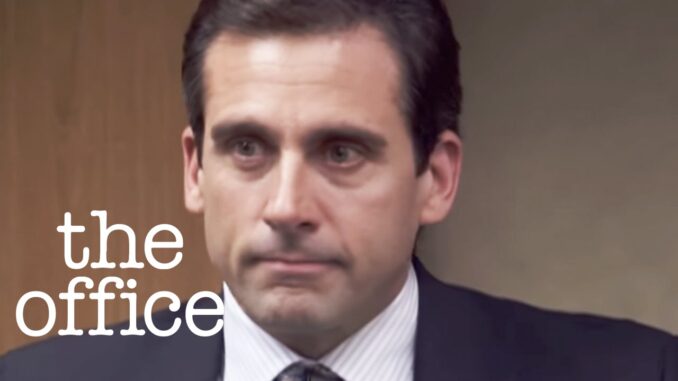
The digital age has gifted us many wonders, but perhaps none as comforting and universally understood as the rewatch. In an era of endless content, the familiar hum of a beloved show often beckons more strongly than the siren song of the new. For millions, that hum belongs to "The Office," a mockumentary about a paper company in Scranton, Pennsylvania, that transcended its humble premise to become a cultural touchstone. We’ve laughed, winced, and cried with Dunder Mifflin's employees countless times, finding solace in their mundane chaos and genuine affection. And then, one unexpected evening, a fleeting surprise reunion during a Super Bowl commercial break reminded us, with startling clarity, precisely why we loved it so profoundly.
The Super Bowl, a titan of American television, is famous not just for its football, but for its commercials. These brief, meticulously crafted narratives often become events in themselves, vying for water cooler chatter the next morning. It was amidst this high-stakes advertising spectacle that the magic happened. The screen flickered to an all-too-familiar office setting: the dull beige walls, the slightly askew blinds, the filing cabinets that seemed to whisper tales of paperwork and procrastination. Then, a voice, unmistakably Michael Scott's, though off-screen. Immediately, a collective gasp rippled through living rooms everywhere. This wasn't just a commercial; this was a glimpse behind the curtain, a reunion we hadn't dared to dream of.
What followed was a perfectly distilled shot of pure "Office" essence. Dwight Schrute, in all his beet-farming, Assistant (to the) Regional Manager glory, was there, bobblehead at the ready. Creed, with his enigmatic deadpan, offered his signature bizarre wisdom. Kevin, ever the simple soul, was a beacon of innocent joy. And then, the familiar, comforting presence of Pam and Jim, reacting to the unfolding absurdity with their classic blend of exasperated affection and knowing glances. There was no grand plot, no lengthy dialogue, just a series of rapid-fire, quintessential "Office" moments, each one a perfectly placed dart aimed at the heart of our nostalgia.
This brief commercial was more than just a marketing ploy; it was a potent mnemonic device, a condensed masterclass in why the show resonated so deeply. Firstly, it reminded us of the show's unparalleled comedic timing and character-driven humor. Within seconds, we were back in the rhythm of Michael's bluster, Dwight's earnest intensity, and the understated genius of the reactions around them. The humor wasn't about elaborate gags; it was about the nuanced absurdity of everyday interactions, elevated by characters we knew intimately. We laughed not just at the jokes, but at the characters delivering them, because we understood their inner worlds.
Secondly, the reunion underscored the show's profound sense of family. Despite the pranks, the office politics, and Michael's often-cringeworthy management style, there was an undeniable current of genuine affection running through Dunder Mifflin. Jim and Pam’s quiet eye-rolls, the unspoken understanding between Oscar and Kevin, even Dwight’s begrudging loyalty to Michael – these weren't just colleagues; they were a makeshift family bound by shared experiences and a common workspace. The commercial, even without direct dialogue, perfectly conveyed this warmth. Seeing them together again felt like bumping into old friends you hadn't realized you missed so much. It was the feeling of "coming home" to a place and people who, despite being fictional, felt profoundly real.
Finally, and perhaps most powerfully, this surprise reunion highlighted "The Office's" ability to find the extraordinary in the ordinary. The show was never about superheroes or sprawling sagas; it was about paper sales, birthday parties, and mandatory fun days. Yet, within this mundane framework, it explored universal themes of love, ambition, disappointment, and the quiet dignity of simply showing up every day. The commercial, set in that familiar, unremarkable office, instantly transported us back to a world where ordinary people, through their quirks and connections, became utterly fascinating. It reminded us that even in the most predictable settings, life is full of humor, heart, and unexpected moments of profound humanity.
The Super Bowl reunion, though fleeting, was a powerful reaffirmation. It wasn't just a nostalgic trip down memory lane; it was a vivid, electric jolt that reignited our affection for Dunder Mifflin and its inhabitants. It proved that the love for "The Office" isn't merely about rewatching episodes; it’s about a deeply ingrained connection to a world that taught us to laugh at ourselves, cherish our colleagues (even the annoying ones), and find joy in the everyday. It reminded us why, even years after its finale, "The Office" remains a comfort, a cultural touchstone, and an enduring testament to the comedic and emotional power of well-told stories about ordinary lives.